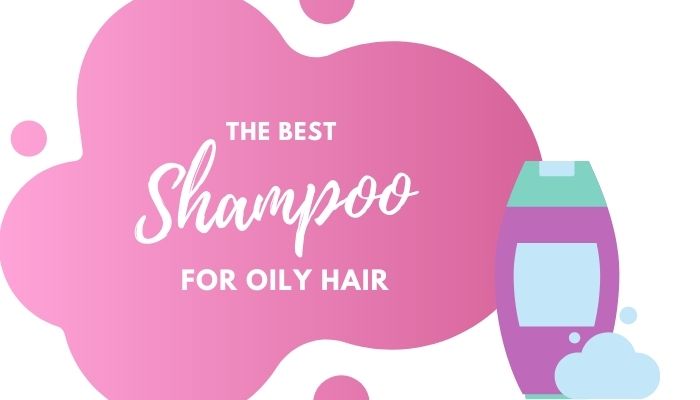You recently washed your hair and styled it the way you like; why is it already limp and greasy? If this is a common scenario for you, it’s time to discover what makes your scalp oil production go overboard.
Not being able to maintain a hairstyle due to greasy hair is a common problem among my clients, especially those with straight, fine hair. Worry no more, as Lucky Curl walks you through why your oily hair sabotages your style.
We also include nifty tips to absorb excess oil that your scalp produces and hair hacks to maintain healthy hair that’s oil free.
View this post on Instagram
Why is my hair getting oily so fast?
Oily hair happens because of an oily scalp. Let’s learn more about this process.
Your sebaceous glands produce natural oils to moisturize your scalp and hair shaft. With a normal scalp, oily roots happen only when hair goes unwashed for several days or weeks.
Your hair gets oily fast for several reasons, some of which are:
- Hormonal changes
- Stress
- Poor diet
- Certain medications
- Wrong hair care routine
Most of these reasons are temporary, and your hair will go back to normal once the underlying cause is addressed. Let’s take a closer look at each one.
Hormonal changes
Hormonal changes are one of the most common causes of excessive oil production. The fluctuations in your hormones can result in overactive oil glands. When this happens, your skin cells turnover faster than usual, resulting in an oil overdrive.
Pregnancy, menopause, and puberty are some examples of hormonal changes that can trigger too much oil production. If you think hormones are the reason behind your oily hair, talk to your doctor. They may prescribe medication to help control your hormone levels and help your hair become oil free.
Stress
Stress can also cause your scalp to produce more oil than usual. When you’re under stress, your body releases the hormone cortisol. This hormone signals your sebaceous glands to produce more oils, leading to oily hair. If you notice that your hair is getting oilier when you’re stressed out, take some time to relax and de-stress. Try yoga or meditation.
Diet
Poor diet is another common cause of oily hair. If you’re not eating enough healthy fats, your body will try to compensate by producing more oils. This situation can lead to an oily scalp and hair. Include healthy fats in your diet, such as avocados, nuts, and seeds. It would help if you also ate plenty of fruits and vegetables in your daily food intake.
Medications
Certain medications can cause your scalp to produce more natural oils. These include birth control pills, antidepressants, and anti-seizure medications. If you think your medication makes your hair oilier, talk to your doctor.
The Wrong Hair Care Routine
You may have dry or coloured hair, and to compensate, you apply conditioner too much, giving hair a greasy appearance. The product mixes up with excess sebum leading to more greasy strands.
Look for styling products that match your scalp’s ph so it won’t irritate it and make your greasy roots worse. Skip any shampoo or conditioner labelled as “shiny, smoothing, o damage repair.” Together with the oil produced by your scalp, these products leave a fine film on your hair and scalp, leaving hair greasy.
Over washing
When you have oily hair, washing your hair often seems the most logical way to avoid excess oil build up. You’ll get tempted to wash your hair every day, but depending on your hair type,
Too much shampoo residue can also contribute to sebum production, as it traps oil buildup. Washing your hair with hot water stimulates more oil production and more sebum.
Tips for Managing Oily Hair
Here are a few tips on how to deal with oily, greasy hair, no matter what hair type you have:
- Use a purifying shampoo. It will serve as a deep cleanser for your scalp and lets you avoid greasy hair.
- Choose a shampoo and conditioner made for oily hair.
- A clarifying shampoo with salicylic acid helps with dandruff and other scalp conditions.
- Apply dry shampoo at your roots to absorb oil in between washes.
- Do this super smart hair hack for hair that stays fresh for longer: Wash your hair with apple cider vinegar mixed with water. Use after your preferred shampoo.
- Aloe vera works wonders too! It can get rid of oily buildup and care for a sensitive scalp. You can mix it with witch hazel extract or essential oils, like tea tree oil. It ensures your hair stays fresh. Apply daily, and you’ll see a dramatic difference as it nourishes hair.
Wrap up
Although having greasy hair is normal, having way too oily locks may be a tell-tale sign of an underlying condition. If you think you have this problem, it’s best to seek professional help. In the meantime, try out some of the tips we’ve mentioned above and our recommendations for the best shampoo for oily hair.
What other oily hair hacks have you tried? Please share it in the comments with us, Curlies!


